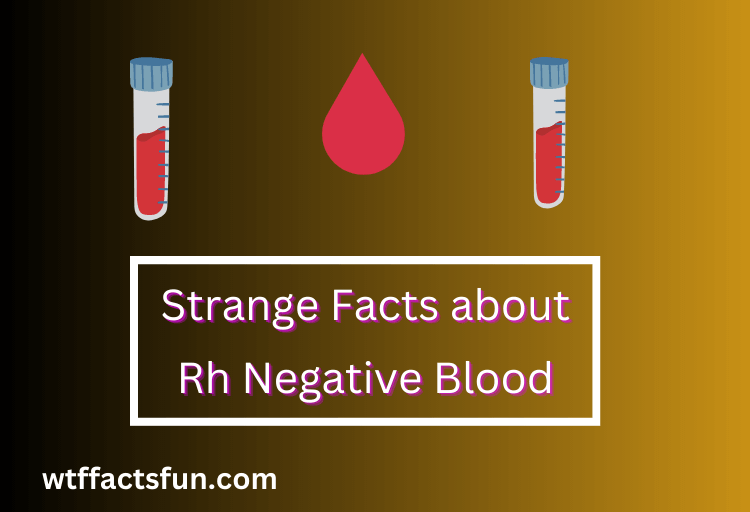
Table of Contents
Strange Facts about Rh Negative Blood
Strange Facts about Rh Negative Blood: Rh negative blood is a relatively rare blood type that lacks the Rh factor, a protein found on the surface of red blood cells in most people. While the biological origins of Rh-negative blood are still a matter of scientific debate, there are several interesting and sometimes strange facts associated with this blood type. In this article, we will explore some of these facts in detail.
- Rh negative blood is relatively rare Only about 15% of people in the world have Rh-negative blood, with the highest concentration found in people of European descent. Rh-negative blood is much less common in people of African and Asian descent.
- Rh negative blood is associated with some unusual physical traits Rh negative blood has been linked to some unusual physical traits, such as a higher than average IQ, lower body temperature, and a heightened sensitivity to light and sound. Some studies have also suggested that people with Rh negative blood may be more resistant to certain diseases, such as HIV and malaria.
- Rh-negative blood may have extraterrestrial origins Some people have speculated that Rh-negative blood may have extraterrestrial origins, as it is relatively rare and lacks the Rh factor that is present in most humans. This theory is not supported by any scientific evidence, however, and is generally considered to be a pseudoscientific claim.
- Rh negative blood can cause complications during pregnancy Rh negative blood can cause complications during pregnancy if the mother’s blood is Rh negative and the baby’s blood is Rh positive. In such cases, the mother’s immune system may produce antibodies against the baby’s blood cells, which can lead to anaemia, jaundice, and other serious health problems.
- Rh negative blood is in high demand for medical purposes Rh-negative blood is in high demand for medical purposes, as it can be used in transfusions for people with Rh negative blood and in certain medical procedures. Blood banks often struggle to maintain sufficient supplies of Rh negative blood due to its relative rarity.
- Rh-negative blood is more common in certain populations While Rh-negative blood is relatively rare overall, it is more common in certain populations, such as the Basque people of Spain and France. The Basque people have one of the highest percentages of Rh negative blood in the world, with up to 40% of the population having this blood type.
- Rh-negative blood can affect the immune system Some studies have suggested that Rh negative blood may be associated with a weakened immune system and an increased risk of certain autoimmune diseases, such as rheumatoid arthritis and lupus. However, more research is needed to confirm these findings.
- Rh negative blood is not an evolutionary disadvantage Despite its relative rarity, Rh negative blood is not considered to be an evolutionary disadvantage. In fact, some researchers have suggested that Rh negative blood may have provided an advantage in certain environments, such as areas with a high risk of malaria.
- Rh negative blood is not necessarily rare in all countries While Rh-negative blood is relatively rare globally, its prevalence can vary widely between different countries and populations. For example, in the United Kingdom, around 17% of the population has Rh-negative blood, while in Japan, less than 1% of the population has this blood type.
- Rh negative blood can be inherited in a recessive manner Rh negative blood is typically inherited in a recessive manner, meaning that a person must inherit two copies of the Rh negative gene (one from each parent) in order to have Rh negative blood. However, some rare cases of Rh-negative blood can occur due to genetic mutations or other factors.
Final Words:
In conclusion, Rh-negative blood is a unique blood type that is associated with some unusual physical traits and can cause complications during pregnancy. While some people have speculated about its origins and properties, much about Rh-negative blood remains unknown, and further scientific research is needed to fully understand this fascinating blood type.
Read also:
Top 21 Fun Facts About Snakes for Kids
30 Fun Facts About California: From Gold Rushes to Giant Sequoias